√100以上 y(1-x^2)dy/dx=x(1 y^2) 315998-3. y(1-x^(2))dy=x(1+y^(2))dx
Yahoo Answers is shutting down on May 4th, 21 (Eastern Time) and beginning April th, 21 (Eastern Time) the Yahoo Answers website will be in readonly mode22/09/09 · ylnx(dy/dx) = ((y1)/x)^2?05/12/17 · y arctan(y) = x C We have dy/dx = 11/y^2 Which is a First Order Separable Ordinary Differential Equation so we can rearrange and "separate the variables" dy/dx = (1y^2)/y^2 => int \ y^2/(1y^2) \ dy = int \ dx We can manipulate the LHS integral \ \ \ \ \ int \ (1y^21)/(1y^2) \ dy = int \ dx int \ 1 1/(1y^2) \ dy = int \ dx Which is now trivial to integrate giving us y

Solve X X 1 Dy Dx X 2 Y X3 2x 1 Maths Application Of Derivatives Meritnation Com
3. y(1-x^(2))dy=x(1+y^(2))dx
3. y(1-x^(2))dy=x(1+y^(2))dx-02/01/ · Solve the differential equation (i) dy/dx (y^2 y 1)/(x^2 x 1) = 0 ← Prev Question Next Question → 0 votes 49 views asked Jan 2, in Differential equations by AmanYadav (555k points) Solve the differential equation (i) dy/dx (y 2 y 1)/(x 2 x 1) = 0 (ii) √ (4x x 2)dy/dx = 1 cos 2 y (iii) x(dy/dx) y 2 /x = y differential equations;07/06/16 · Please solve solve (x1) dy/dx (x2)y = 2xe^x?



What Is The Solution For Math Sqrt 1 X 2 Sqrt 1 Y 2 Dx Xy Dy 0 Math Quora
25/04/18 · Solve the following differential equation (1x2)dy/dxy=tan1x15/08/19 · This is my attempt \frac{dy}{dx} = \frac{y^2 1}{x^2 1} \\ \int \frac{dy}{y^2 1} = \int \frac{dx}{x^2 1} \\ \ln \left \frac{y1}{y1} \right Insights Blog Browse All Articles Physics Articles Physics Tutorials Physics Guides Physics FAQ Math Articles Math Tutorials Math Guides Math FAQ Education Articles Education Guides Bio/Chem Articles Technology Guides ComputerSimple and best practice solution for (x^2)dxy(x1)dy=0 equation Check how easy it is, and learn it for the future Our solution is simple, and easy to understand, so don`t hesitate to use it as a solution of your homework If it's not what You are looking for type in the equation solver your own equation and let us solve it
27/04/18 · If √(1x^2)√(1y^2)=a(xy),show that dy/dx=√(1y^2/1x^2) ← Prev Question Next Question → 0 votes 213k views asked Apr 27, 18 in Mathematics by Nisa (596k points) If √(1x 2)√(1y 2)=a(xy),show that dy/dx=√(1y 2 /1x 2) differential equations;14/05/14 · y√(1 x²) dy/dx x√(1 y²) = 0 rearrange to arrive with y / √(1 y²) dy = x / √(1 x²) dx let y = sin(m) dy = cos(m) dm substitution yieldsFind dy/dx y=(x^2)/(3x1) Differentiate both sides of the equation The derivative of with respect to is Differentiate the right side of the equation Tap for more steps Differentiate using the Quotient Rule which states that is where and Differentiate Tap for more steps Differentiate using the Power Rule which states that is where Move to the left of By the Sum Rule, the
Simple and best practice solution for (2xy)dx(x^21)dy=0 equation Check how easy it is, and learn it for the future Our solution is simple, and easy to understand, so don`t hesitate to use it as a solution of your homework If it's not what You are looking for type in the equation solver your own equation and let us solve itShare It On Facebook Twitter Email 1 Answer 1 vote answered Apr 27, 18 by rubby (518k points)Simple and best practice solution for (x^2)dyy(1x)dx=0 equation Check how easy it is, and learn it for the future Our solution is simple, and easy to understand, so don`t hesitate to use it as a solution of your homework If it's not what You are looking for type in the equation solver your own equation and let us solve it Equation SOLVE Solution for (x^2)dyy(1x)dx=0 equation



Math 432 Hw 2 5 Solutions Pdf Free Download



Solve The Differential Equation 1 X 2 1 Y Dx Xy 1 Y Dy Brainly In
Divide both sides by x(1 — y) to put all factors with x on the left and all factors with y on the right (1 — x^2)/x dx = y(1 y)/ (1 — y) dy Now integrate both sides You'll need to use polynomial division to rewrite both sides as a polynomial plus a proper rational expression firstFind dy/dx y^2=1/(1x^2) Differentiate both sides of the equation Differentiate the left side of the equation Tap for more steps Differentiate using the chain rule, which states that is where and Tap for more steps To apply the Chain Rule, set as Differentiate using the Power Rule which states that is where Replace all occurrences of with Rewrite as Differentiate the rightWelcome to Sarthaks eConnect A unique platform where students can interact with teachers/experts/students to get solutions to their queries Students (upto class 102) preparing
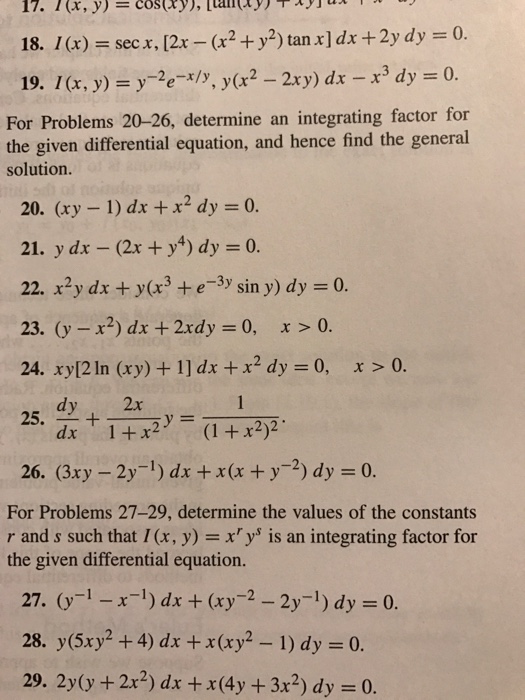


Solved For Problems 26 Determine An Integrating Facto Chegg Com
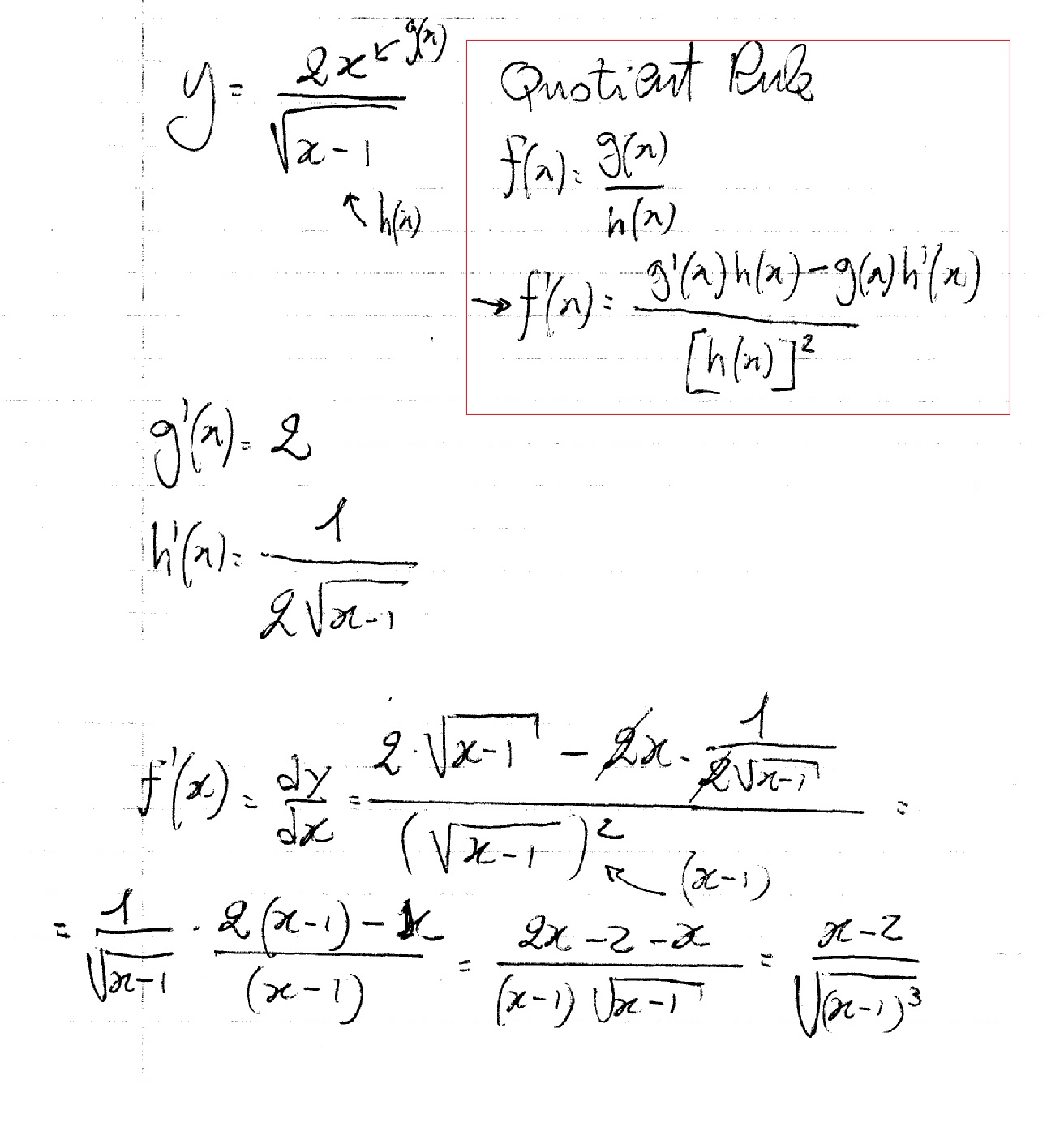


How Do You Find Dy Dx For Y 2x Sqrt X 1 Socratic
07/05/18 · and multiplying numerator and denominator by #(1x^2)^2# #dy/dx = ((1x^2)^2 y^2 2xy)/((1x^2)^2 y^2 1x^2)# #dy/dx = (x^42x^2 y^2 2xy1)/(x^43x^2 y^2 2)#The derivative of the function `y = log(x 1/x)` with respect to x, `dy/dx` has to be determined It is assumed that log in the problem refers to natural logarithm1 day ago · There are no constant solutions to this DE Can you please explain why the range of the solution of this IVP is a subset of $(1,1)$ I understand that this is a fairly straightforward IVP to solve, but I believe the answer to the question is intended to be inferred from information obvious without finding the solution



Ex 9 6 8 Find General Solution 1 X2 Dy 2xy Dx Ex 9 6



Solutions Manual For Differential Equations An Introduction To Modern Methods And Applications 3rd E By Gucci6547 Issuu
Answer to Solve the initial value problem dy/dx = (y^2 1)/(x^2 1), y(2) = 2 By signing up, you'll get thousands of stepbystep solutions toSpecify Method (new) Chain Rule;Find dy/dx y^2=(x1)/(x1) Differentiate both sides of the equation Differentiate the left side of the equation Tap for more steps Differentiate using the chain rule, which states that is where and Tap for more steps To apply the Chain Rule, set as Differentiate using the Power Rule which states that is where Replace all occurrences of with Rewrite as Differentiate the right


If Y X Is A Solution Of 2 Sinx 1 Y Dy Dx Cosx And Y 0 1 Then Find The Value Of Y P 2 Studyrankersonline
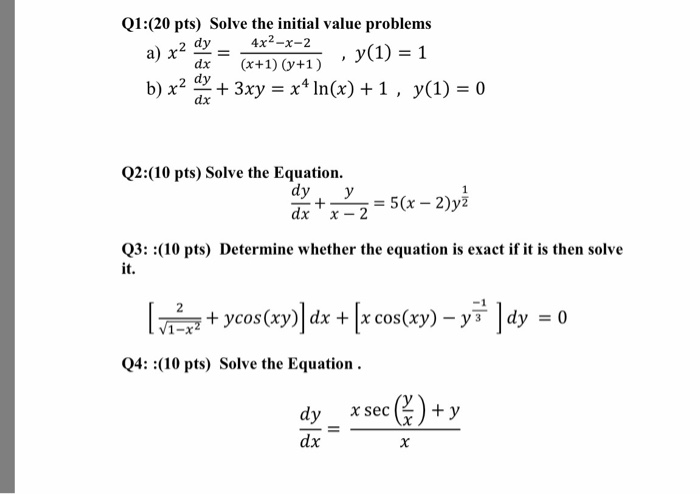


Solved Solve The Initial Value Problems X 2 Dy Dx 4x 2 Chegg Com
Make the substitution mathvy=1/math, so that math\begin{align*}0=v'yvy'&= v'yv\cdot\frac{xyy^2}{1x^2}\\ &=v'v\cdot\frac{xy}{1x^2}\\ &=v'\frac{x}{1x^2}v11/10/18 · To ask Unlimited Maths doubts download Doubtnut from https//googl/9WZjCW `(1x^2)dy/dx=1y^2`17/11/18 · Solve the differential equation (1 y^2) tan^1x dx 2y (1 x^2) dy = 0 asked Sep 21, in Differential Equations by Chandan01 (512k points) differential equations;



Worked Example Identifying Separable Equations Video Khan Academy



If Y X Is The Solution Of Dy Dx X 2 1 Y 2 Y 0 2 Then Y 3 Homeworklib
VITEEE 14 The solution of (dy/dx) = (x2 y2 1/2xy), satisfying y(1) = 0 is given by (A) hyperbola (B) circle (C) ellipse (D) parabola Check AnI need to solve this ordinary differential equation Please show the stepsMy main problem arises when it comes time to integrate Answer Save 2 Answers Relevance schmiso Lv 7 1 decade ago Favorite Answer Actually you get an integrals which can't be solved analytically The only way to I see is to express result in terms of socalled exponentialI came across a question solve $$\frac{dy}{dx} = \frac{1}{xy^2},\qquad y(2) = 0$$ I have no clue how to proceed I have suspicion that this equation has no closed form solution and may be there was a mistake in the question Course is a basic course on ODEs I will appreciate solution/hints/further reading ordinarydifferentialequations Share Cite Follow edited Sep 3
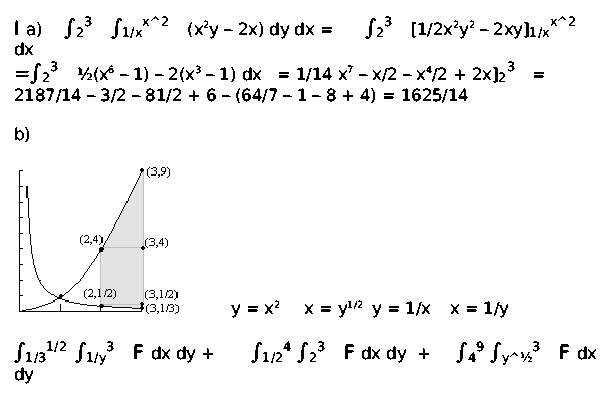


Answers To The Review Problems For The First Exam 251 05 10 In Spring 06



Engineering Mathematics Notes
Derivative at a point;Y = 1 x2 y = 1 x 2 Differentiate both sides of the equation d dx (y) = d dx (1 x2) d d x (y) = d d x (1 x 2) The derivative of y y with respect to x x is y' y ′Simple and best practice solution for (1x^2y^2x^2y^2)dy=y^2dx equation Check how easy it is, and learn it for the future Our solution is simple, and easy to understand, so don`t hesitate to use it as a solution of your homework



Engineering Mathematics Notes



Differential Equations Solved Examples 17
Implicit derivative (dy)/(dx), (xy)^2=xy1 Derivatives First Derivative;Answer to Using the Bernoulli Method, solve the differential equation x(dy/dx) (1 x)y = xy^2 By signing up, you'll get thousands of23/06/08 · dy/dx = ( y^21)/(x^21) ultimately results dy/dx = y/x By seperating y & x with respective to dy & dx you ca obtain dy/y = dx/x By integrating both sides with respective to x & y gives Ln(y) = Ln(x) C C is the integral constant Ln means logarithm to base 'e' Hope you get the answer Y(2) = 2 depending on the results of above solved
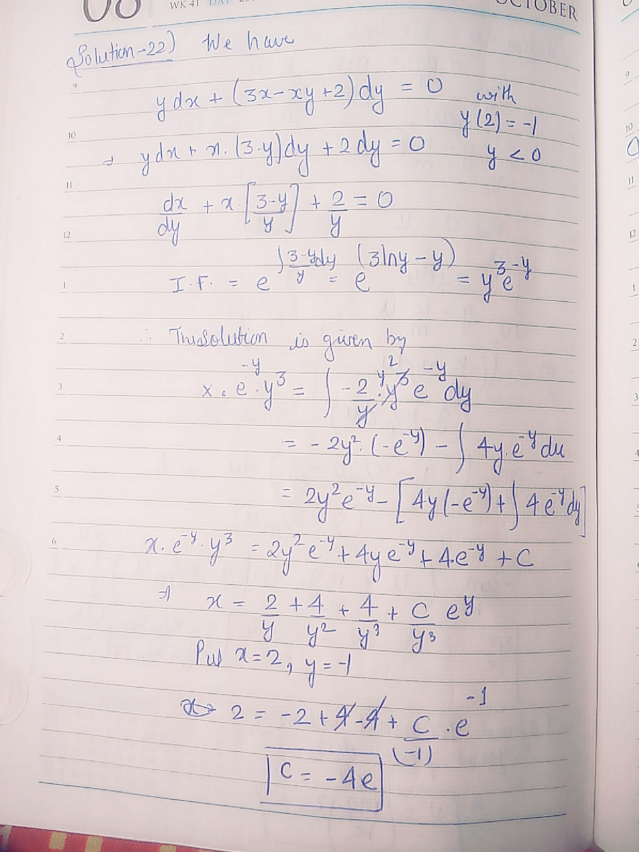


Solve The Initial Value Problem Y Dx 3x Xy 2 Dy 0 Y 2 1 Y 0 Homework Help And Answers Slader



Solve The Following Differential Equation Y 1 X 2 Dy Dx X
0 votes 1 answer Find the general solution of the following differential equation x cos(y/x) dy/dx = y cos(y/x) x asked Mar 17 in Differential Equations bySimple and best practice solution for y(2x^2xy1)dx(xy)dy=0 equation Check how easy it is, and learn it for the future Our solution is simple, and easy to understand, so don`t hesitate to use it as a solution of your homework If it's not what You are looking for type in the equation solver your own equation and let us solve itDerivative Applications Tangent;
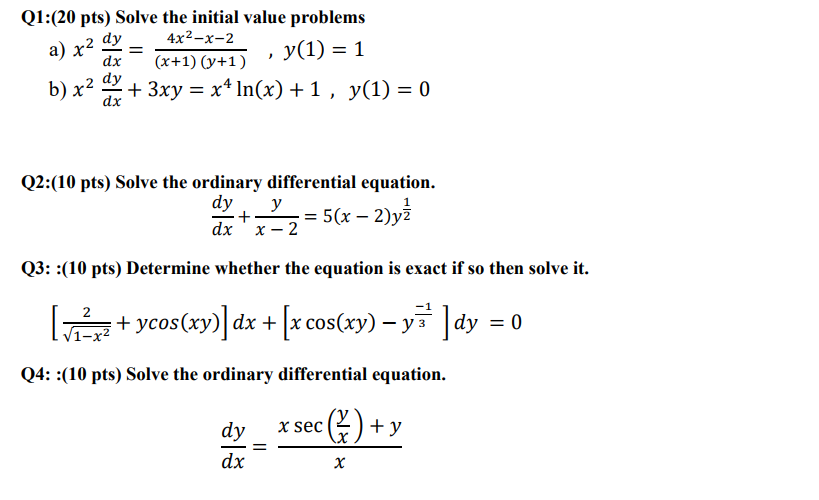


Solved Solve The Initial Value Problems A X 2 Dy Dx 4x Chegg Com



4 Solve The Exact Differential Equation 1 2xy Dx 4y3 X2 Dy 0 4 Solve The Exact Differential Equation Homeworklib
Learn how to solve differential equations problems step by step online Solve the differential equation xy*dx(1x^2)dy=0 Grouping the terms of the differential equation Group the terms of the differential equation Move the terms of the y variable to the left side, and the terms of the x variable to the right side Simplify the expression \frac{1}{y}dy Integrate both sides of the10/08/ · Show that the general solution of the differential equation (dy/dx) (y^2 y 1/(x^2 x 1)) = 0 is given by (x y 1) = A (1 – x – y – 2xy) asked Aug 9, in Mathematics by Aryan01 (501k points) cbse;
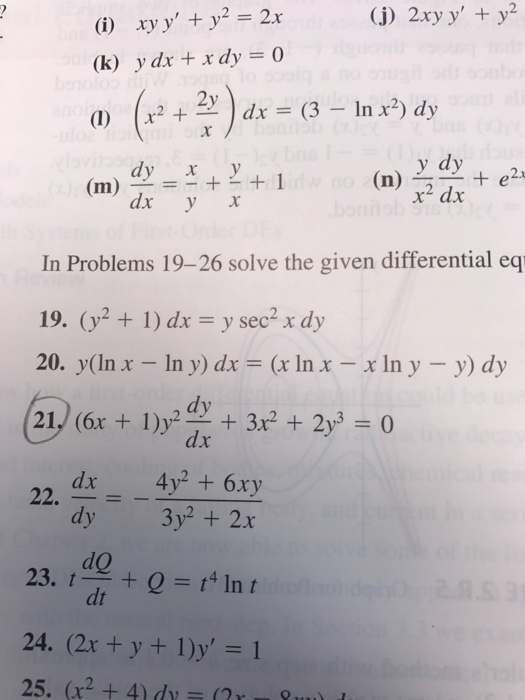


Solved Xy Y Y 2 2x 2xy Y Y 2 Y Dx X Dy 0 X 2 Chegg Com



Solve X X 1 Dy Dx X 2 Y X3 2x 1 Maths Application Of Derivatives Meritnation Com



Solve The Linear Differential Equation X 2 1 Dy Dx Xy X Youtube



Homogeneous Differential Equations
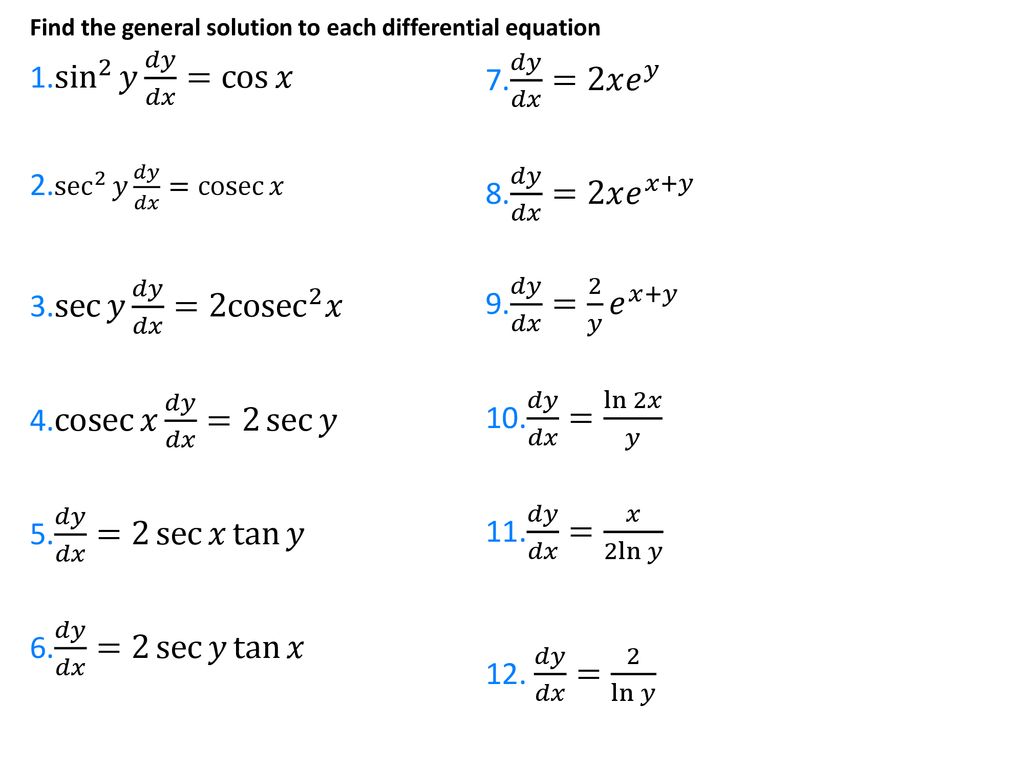


Differential Equations Separation Of Variables Ppt Download



X 1 Y2 Dx Y 1 X2 Dy 0 Brainly In



Differential Equations Solved Examples Solve The Ivp 2xy X 4 Dx X 2 Y 2 Dy 0 Y 0 1



Initial Value Problem Dy Dx Y 1 X 3 With Y 1 0 Separable Differential Equation Youtube
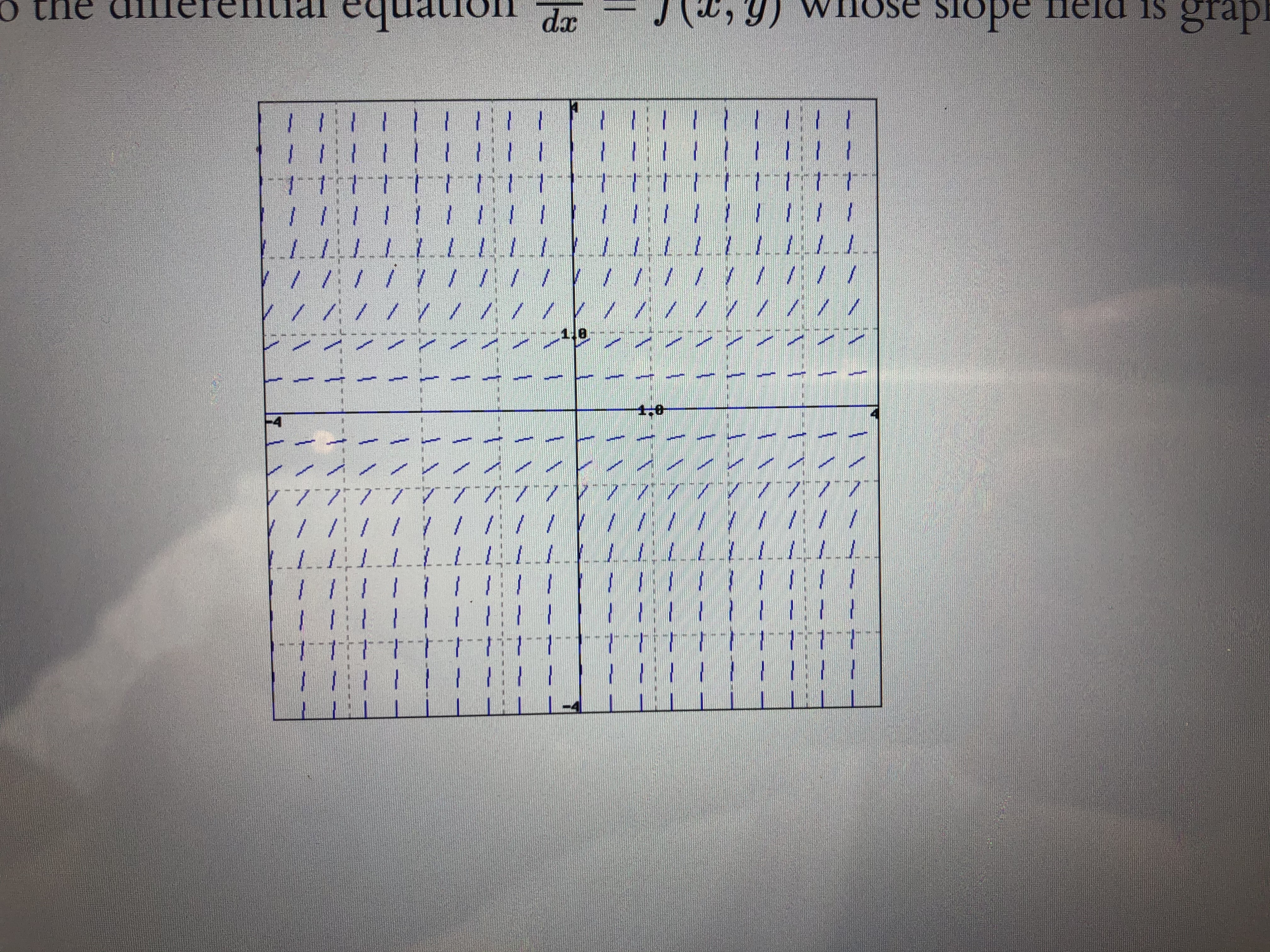


Answered Which Of The Following Are Solutions To Bartleby


How To Solve The First Order Differential Equation Dy Dx Y 1 X 1 Y 0 1 Quora
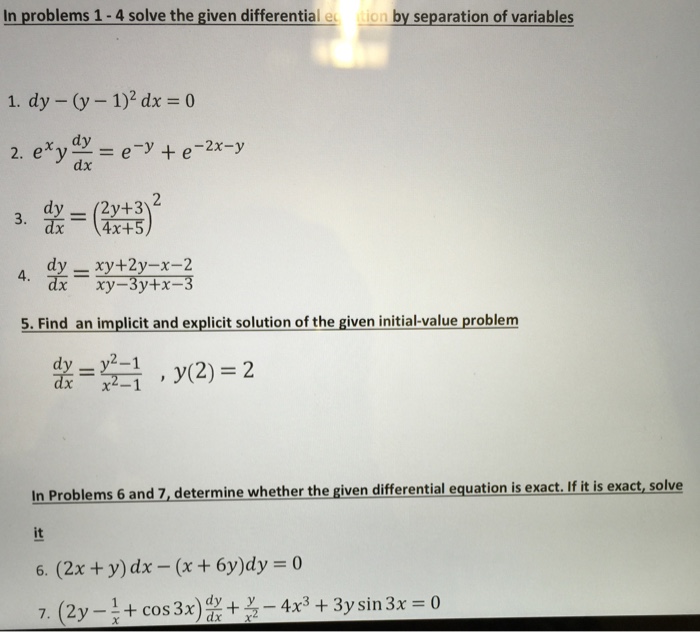


Solved Solve The Given Differentia By Separation Of Varia Chegg Com
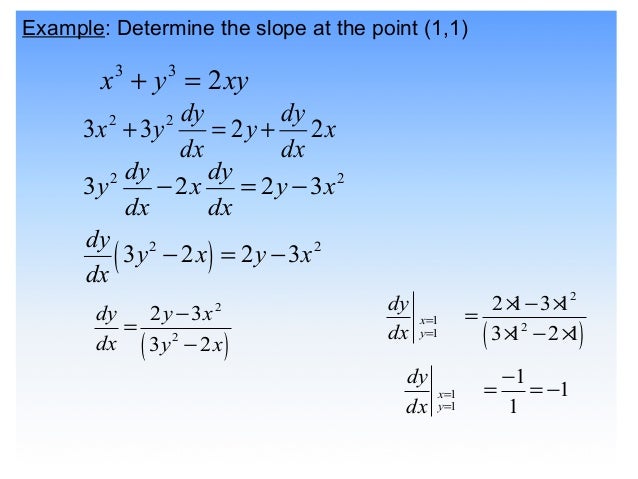


4 1 Implicit Differentiation


Solve Dy Dx Xy 1 X 2 X Y Sarthaks Econnect Largest Online Education Community
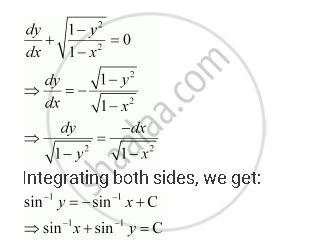


Find The General Solution Of The Differential Equation Dy Dx Sqrt 1 Y 2 1 X 2 0 Mathematics Shaalaa Com



The Solution Of Xsqrt 1 Y 2 Dx Ysqrt 1 X 2 Dy 0 Youtube
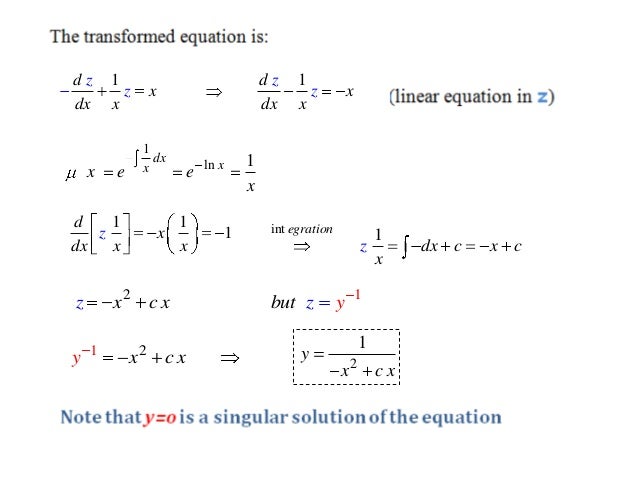


برنوللي والمتجانسة وريكاتي



Pdf Math 255 Exercises Suleyman Tarsuslu Academia Edu
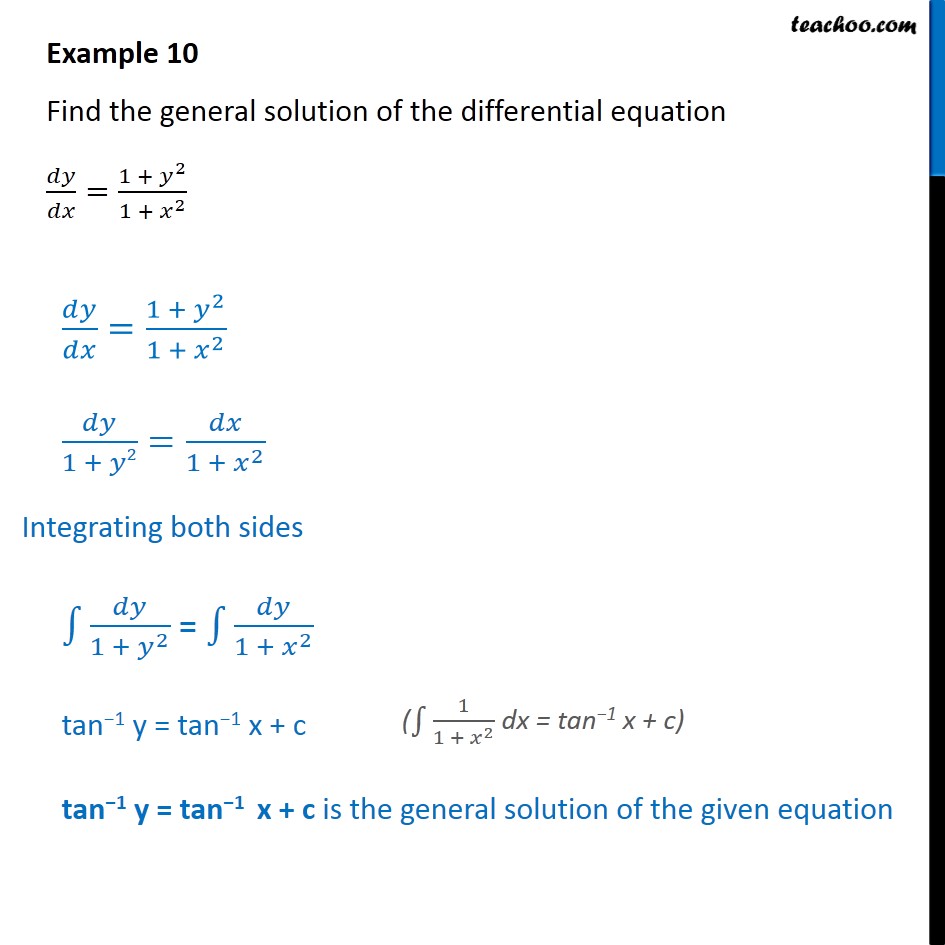


Example 10 Find General Solution Dy Dx 1 Y2 1 X2 Examples



Worked Example Implicit Differentiation Video Khan Academy



Engineering Mathematics Notes



Engineering Mathematics Notes


Find The General Solution Of The Differential Equation 1 Y2 X Etan 1y Dy Dx 0 Studyrankersonline



Solve The Differential Equation 1 X 2 Dy Dx 1 Y 2 0 Giv



The Solution Of The Differential Equation Dy Dx X Y X Satisfying The Condition Y 1 1 Is Brainly In



Solve 1 X 2 D 2y Dx 2 X Dy Dx Y X 1 X 2 3 2 Mathematics 2 Question Answer Collection
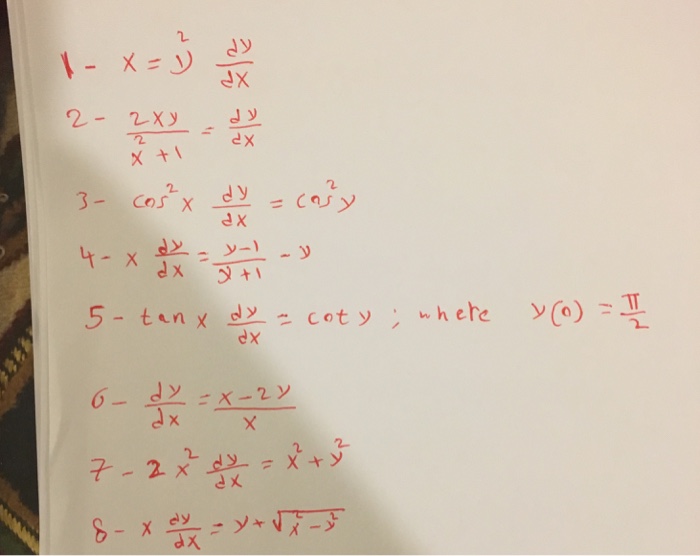


Solved X Y 2 Dy Dx 2xy X 2 1 Dy Dx Cos 2x Dy Dx C Chegg Com
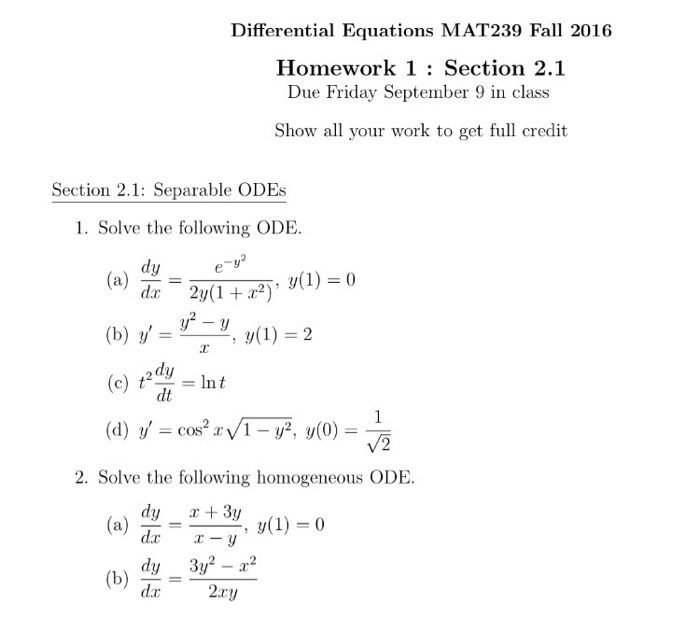


Solved Solve The Following Ode Dy Dx E Y 2 2y 1 X 2 Chegg Com
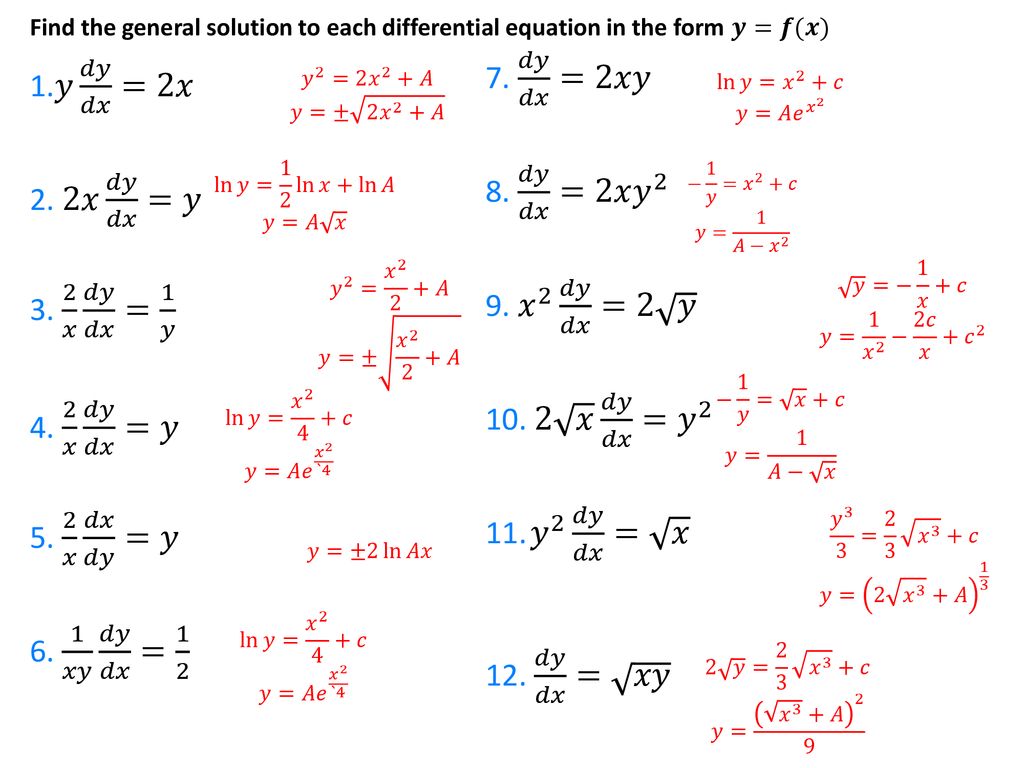


Differential Equations Separation Of Variables Ppt Download



How To Solve Math 1 X 2 Dy 1 Y 2 Dx Math Quora


Solved Find The Particular Solution Indicated For The Following Course Hero



Solve Y 1 Xy Dx X 1 Xy X 2y 2 Dy 0 Mathematics Stack Exchange
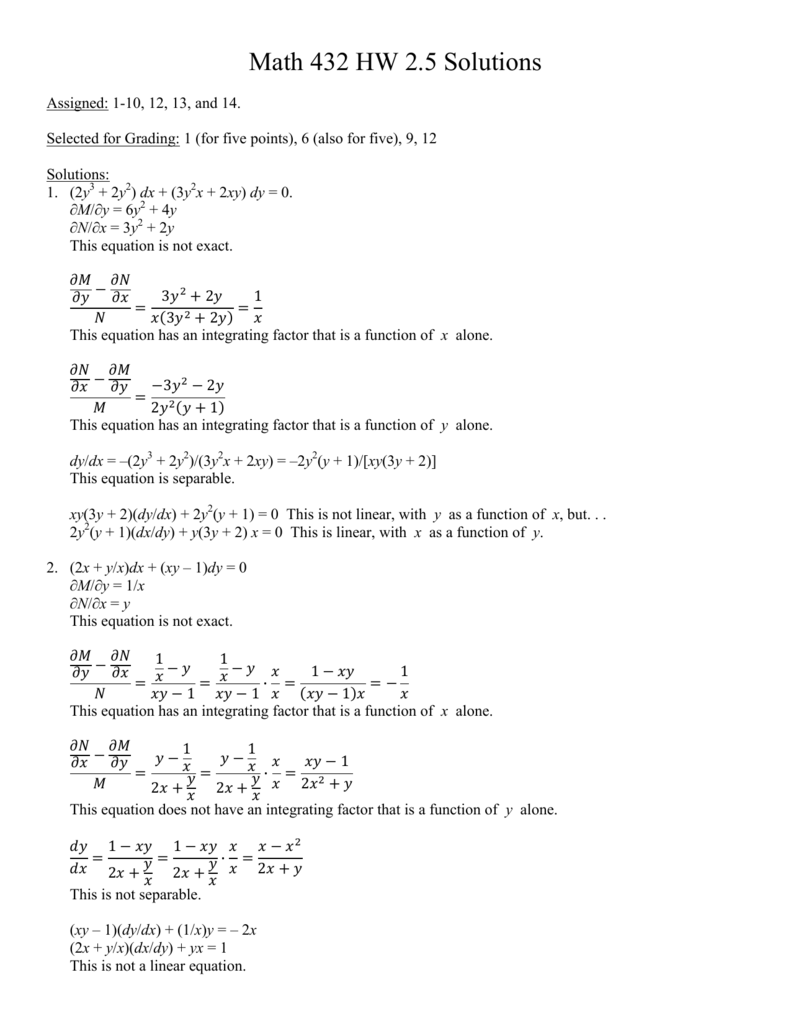


Math 432 Hw 2 5 Solutions
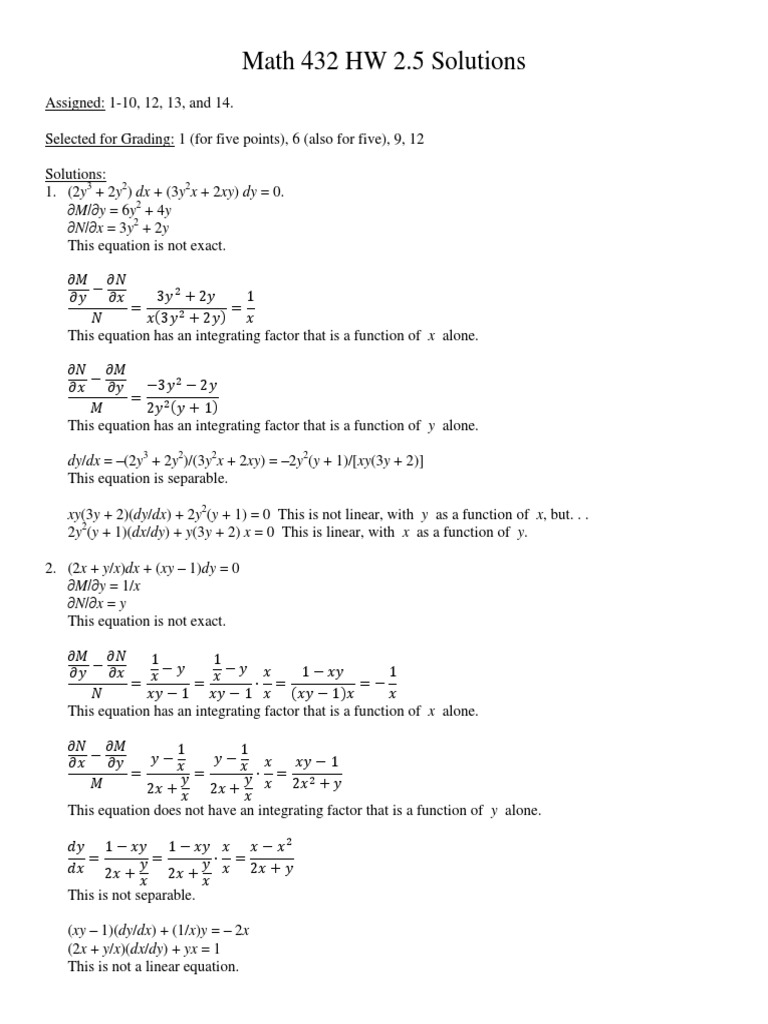


Hw 2 5 Solutions Differential Equations Equations



X Y 1 Dx Y X 1 Dy 0find The General Solution Of The Differential Equation Brainly In



X 1 X 2 Dy 2x 2y Y Ax 3 Dx 0


Solved Solve The Following Differential Equations X Y 3 Dx X Y 1 Dy 0 2 X Y 1 Dx 3x 4y 2 Dy C 3 1 Y 2 Xy 2 Dx X 2y Y 2xy Dy Course Hero



Solved Solve Each Of The Following 4 Initial Value Problems Ivp Via 1 Answer Transtutors



Ex 9 6 14 Find Particular Solution 1 X2 Dy Dx 2xy
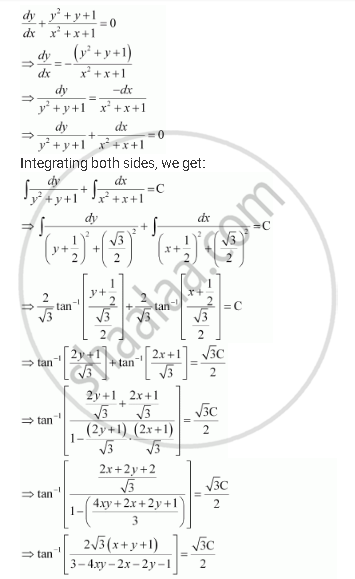


Show That The General Solution Of The Differential Equation Dy Dx Y 2 Y 1 X 2 X 1 0 Is Given By X Y 1 A 1 X Y 2xy Where A Is Parameter Mathematics Shaalaa Com
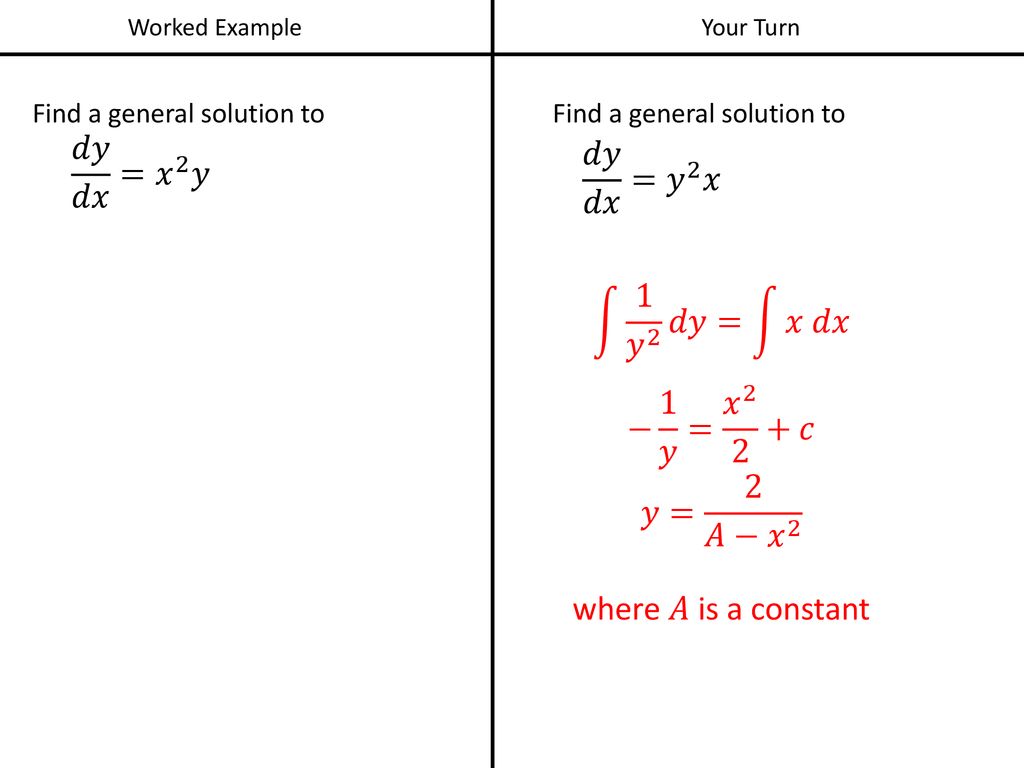


Differential Equations Separation Of Variables Ppt Download



Engineering Mathematics Notes



Practice Questions 1 Equations Integral



Solving The Bernoulli Differential Equation X 2 Dy Dx Y 2 Xy Youtube



Engineering Mathematics Notes



Solution Solve The Differential Equation X Y 1 Dx X 1 Dy 0 If



Solution Manual For Differential Equations An Introduction To Modern Methods And Applications 3rd Ed By Zwoho4 Issuu



Solve 1 X 2 D 2y Dx 2 X Dy Dx Y X 1 X 2 3 2 Mathematics 2 Question Answer Collection



Solve The Differential Equation X 1 Dydx 2x 3y


Find The General Solution Of Differential Equation Y 1 X 2 Dy Dx X 1 Y 2 Sarthaks Econnect Largest Online Education Community



Bernoulli Differential Equation X Dy Dx Y 1 Y 2 Differential Equations Math Videos How To Become


How To Solve X Y 1 2 Dy Dx 1 Quora
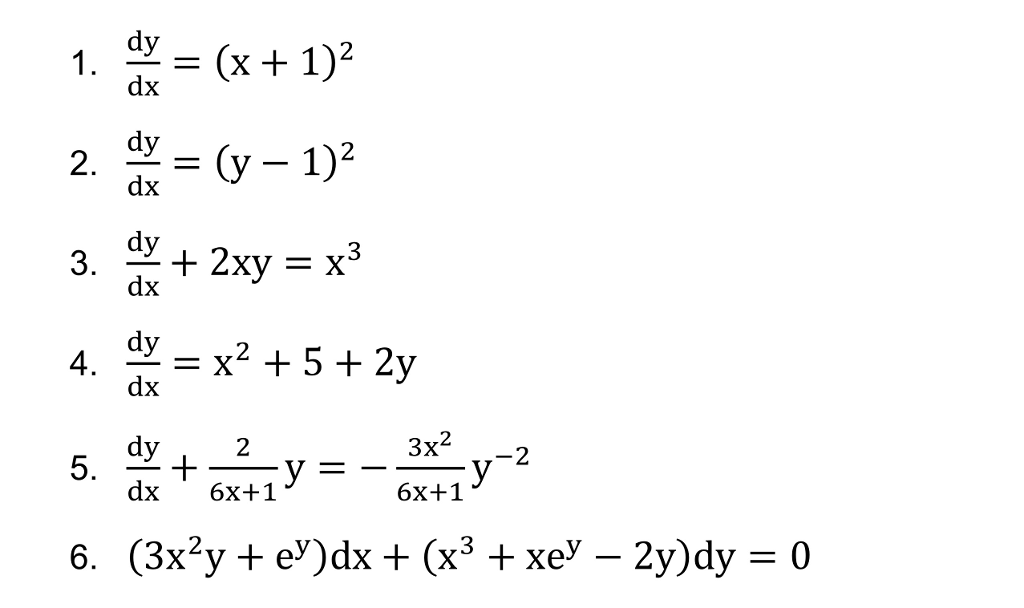


Solved Dy Dx X 1 2 Dy Dx Y 1 2 Dy Dx 2xy Chegg Com
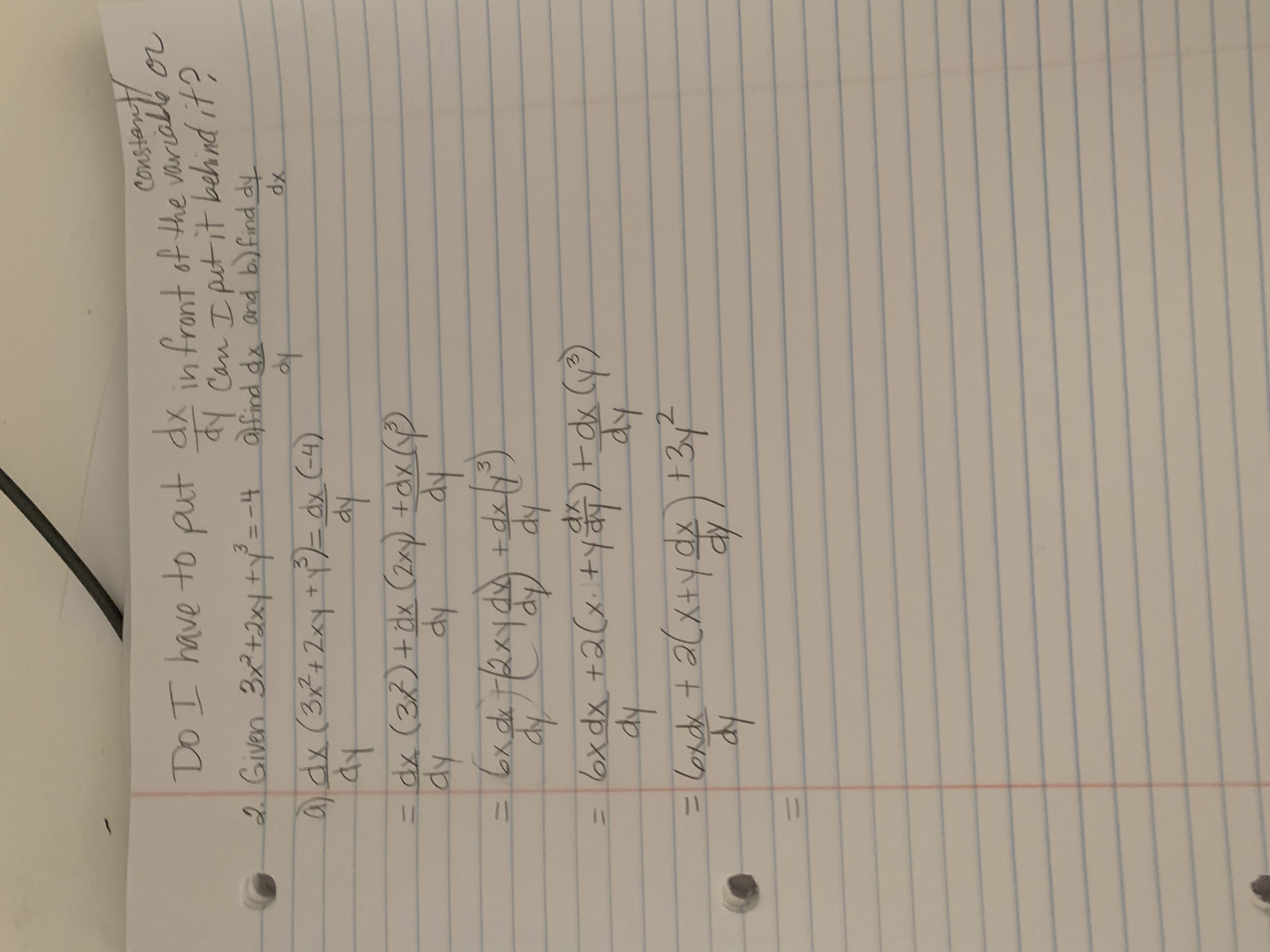


Answered Rebecca Ferrer 2 26 Given Bartleby


Find The General Solution Of Differential Equation X 1 Y 2 Dx Y 1 X 2 Dy 0 Sarthaks Econnect Largest Online Education Community
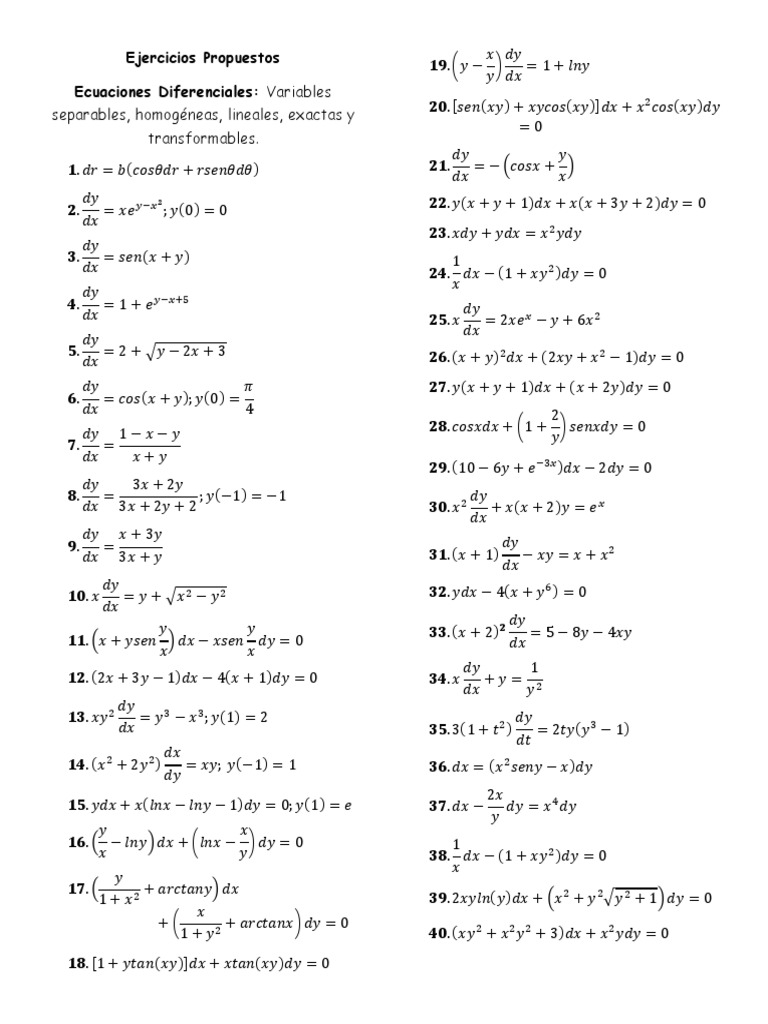


Ejercicios Propuestos Ecuaciones Diferenciales Primer Orden Pdf Differential Equations Equations



Ex 9 4 16 For Xy Dy Dx X 2 Y 2 Find Solution



Implicit Differentiation


What Is The Solution Of The Differential Equation 1 X 2 Dy 1 Y 2 Dx 0 Quora
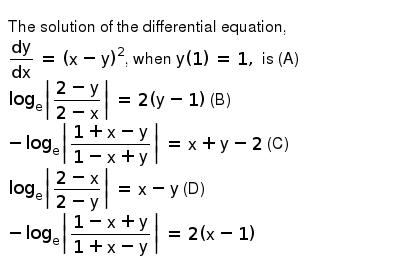


The Solution Of The Differential Equation Dy Dx X Y 2 Whe



What Is The Solution For Math Sqrt 1 X 2 Sqrt 1 Y 2 Dx Xy Dy 0 Math Quora
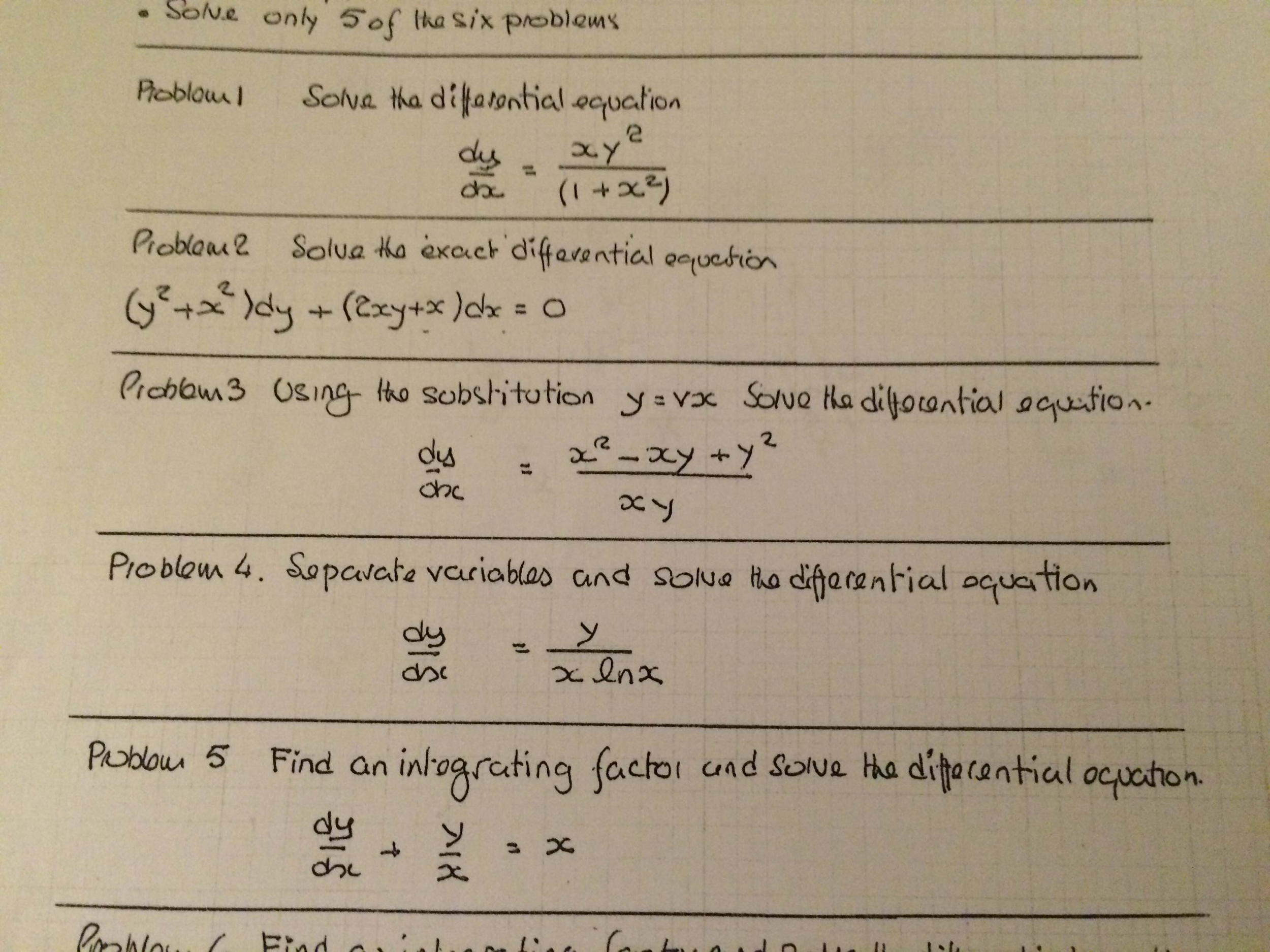


Solved Solve The Differential Equation Dy Dx Xy 2 1 Chegg Com



Example 9 Find General Solution Of Dy Dx X 1 2 Y Examples



If Y X Is The Solution Of Dy Dx X 2 1 Y 2 Y 0 2 Then Y 3 Homeworklib
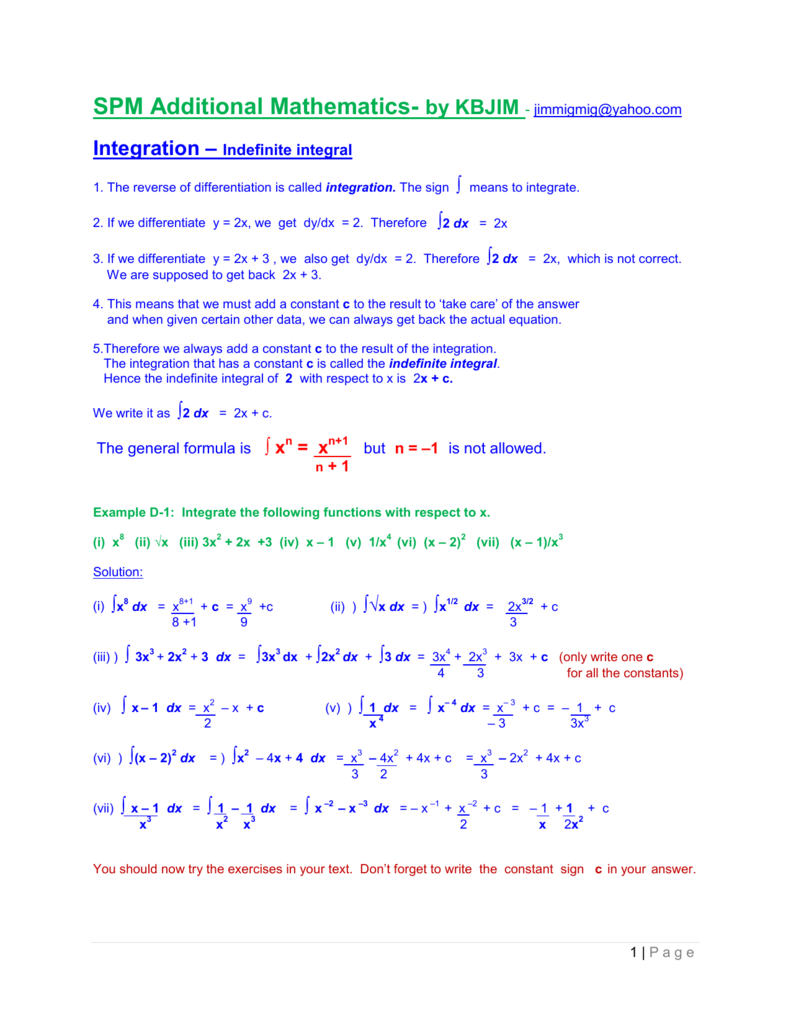


Integration Webfunpage Com


How To Solve The Differential Equation Math X Sqrt 1 Y 2 Dx Y Sqrt 1 X 2 Dy 0 Math Quora
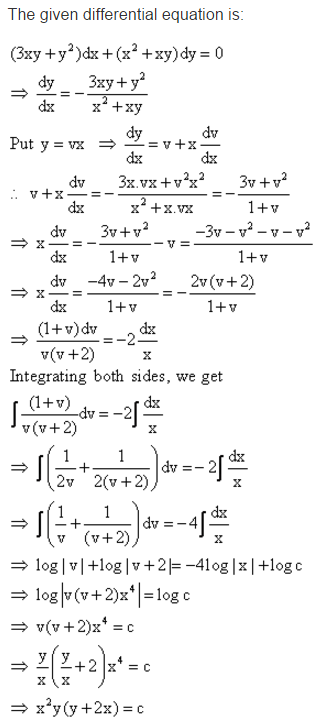


Find The Particular Solution Of Given Differential Equation 3xy Y 2 Dx X 2 Xy Dy 0 At X 1 Y 1 Mathematics Topperlearning Com D1ksg633



Differential Equations Solved Examples 17


How To Solve This Differential Equation X 1 Dy Dx X 2 3x 2 Quora



X 1 Y 2 Dx Y 1 X 2 Dy 0 Youtube



Solution Of Y Xy 1 Dx X 1 Xy X 2y 2 Dy 0 Mathematics Stack Exchange



Plz Solve The Differential Eq 1 X2 Dy Dx Xy X2 Where Y 2 And X 0 Maths Differential Equations Meritnation Com


How To Get The Special Solution Of This Differential Equation Y Xdy Dx 2 1 X 2 Dy Dx Where X 1 Y 1 Quora



Separable Differential Equation Dy Dx X Sqrt 1 Y 2 Youtube


コメント
コメントを投稿